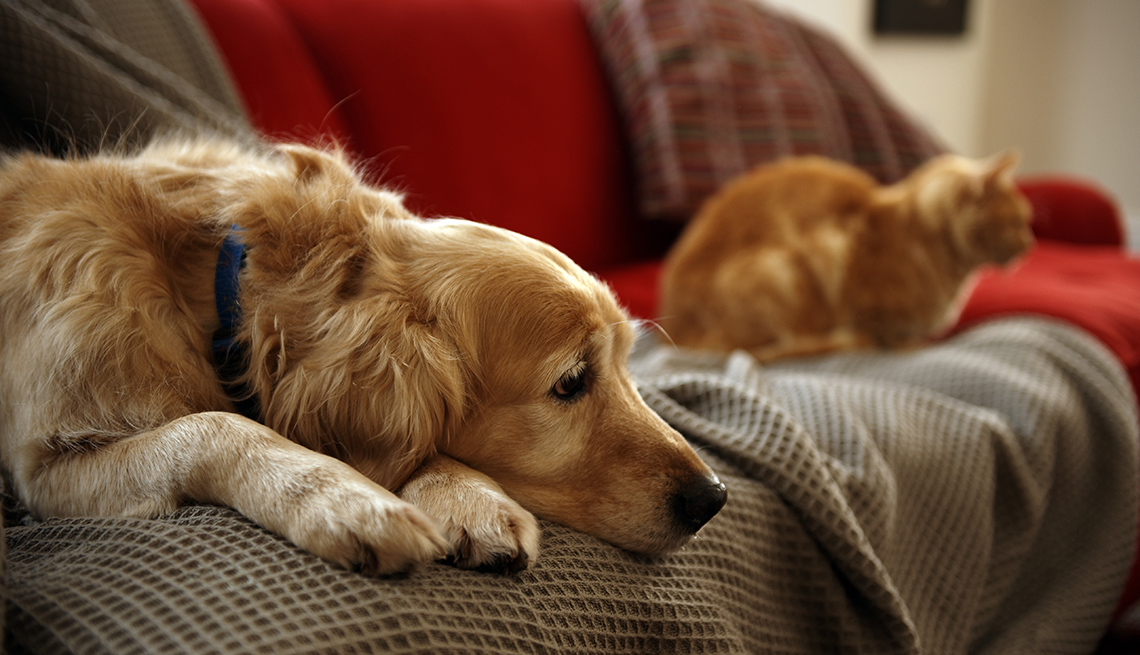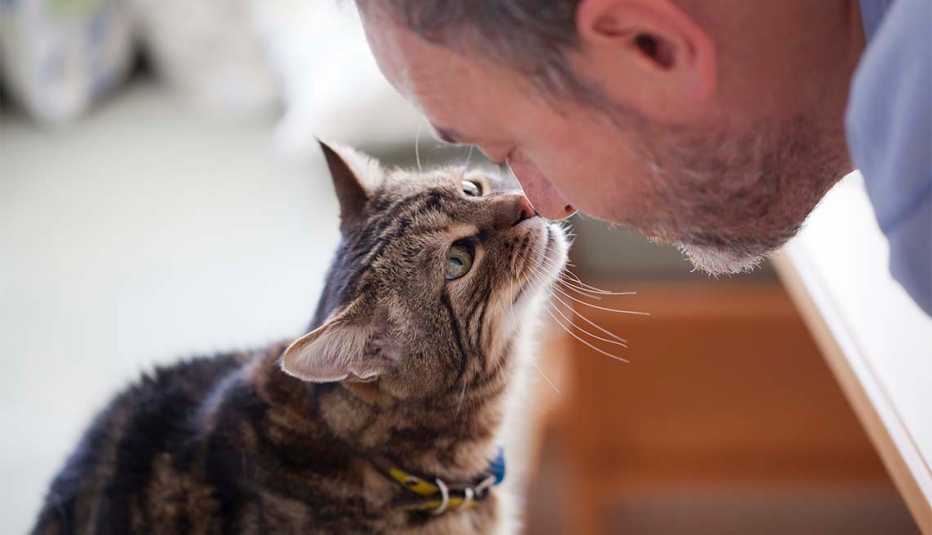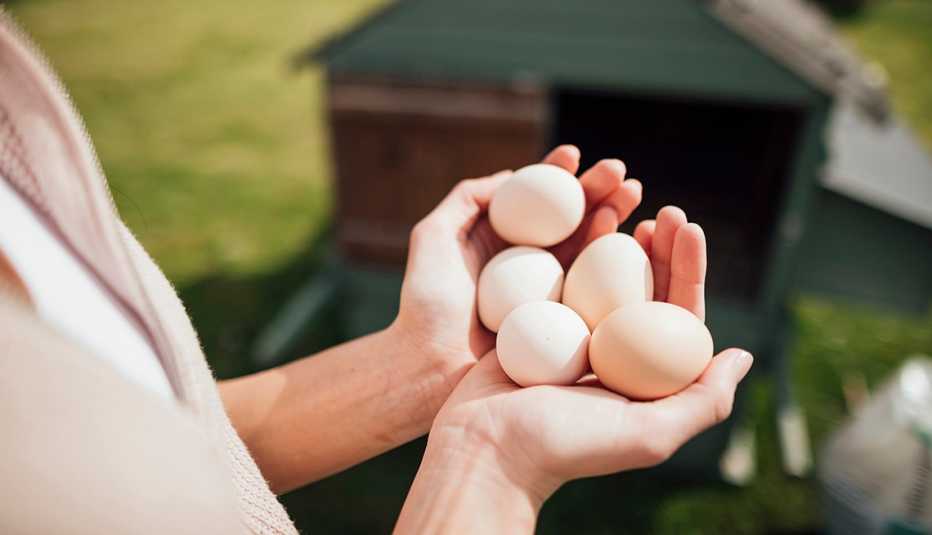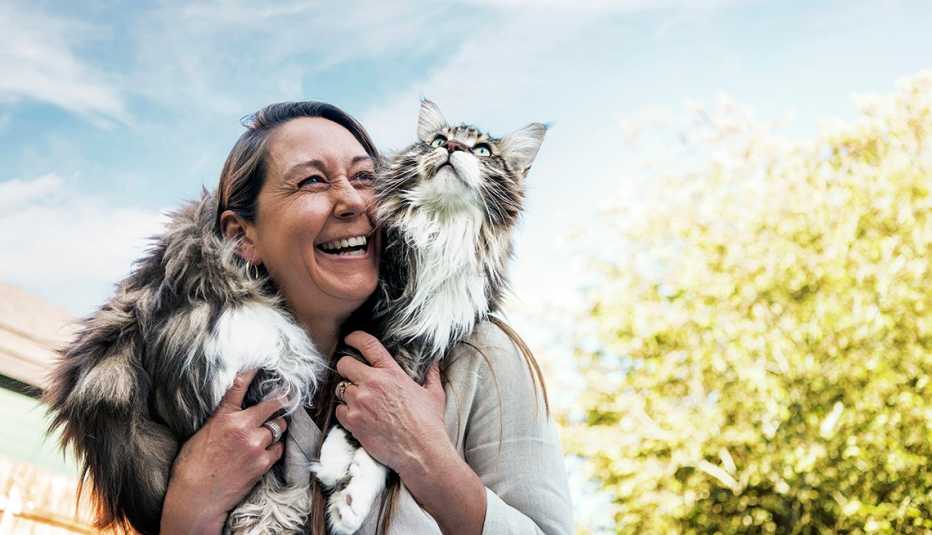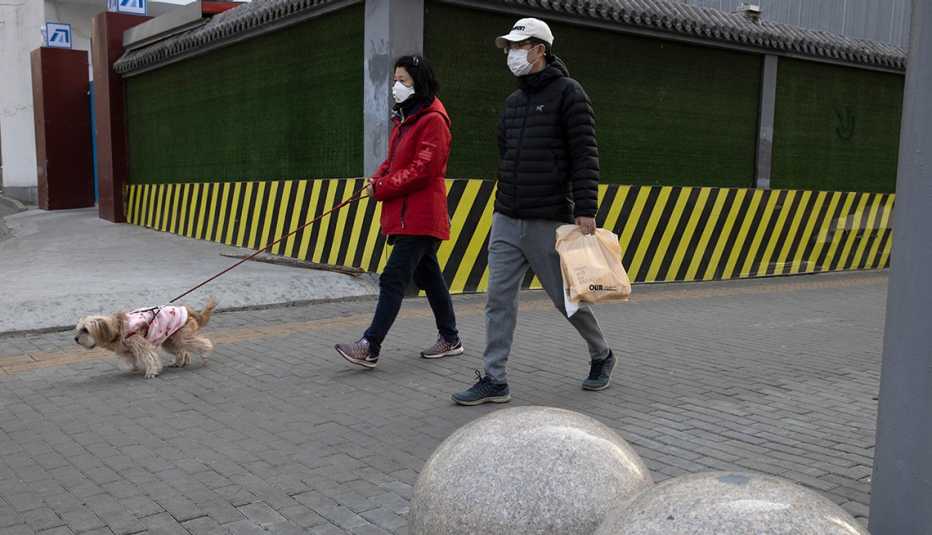AARP Hearing Center
As more people get vaccines and decide to venture out of their homes for work and socializing, one member of the family may not be happy about it: your pet.
During the pandemic, dogs, cats and other animals got accustomed to spending nearly all day, every day, with their humans, who were often working from home and curbing their outings.
For example, when Vivian Alford, 58, returned to work in the office for her job as a senior library specialist, she was more worried about leaving her dog, Bingo, home alone than contracting COVID-19.

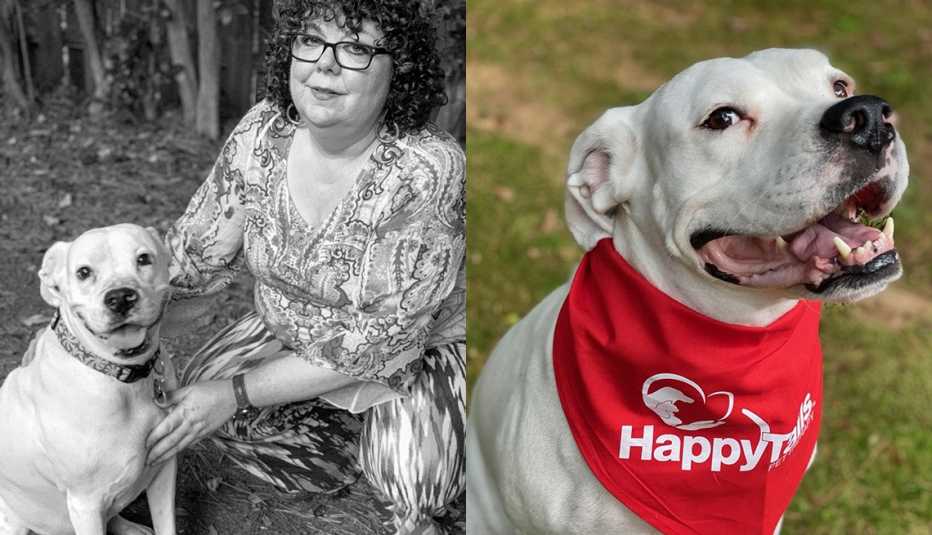
After quarantining for months, Alford went back to her Atlanta branch in late July, working six days on and then having six days off. Bingo marked Alford's absence by moving couch cushions to the floor and chewing up recycling. “I think he was frustrated that I wasn't here,” she says.
However, Alford may be feeling more anxiety about the separation than her pet. “I'm just so attached to this dog,” she says. “I feel like we bonded more than we ever have."
During quarantine, people and pets have connected as never before. Pandemic interest in pet ownership skyrocketed — the Humane Society of the United States estimates that the rates of pet fostering spiked by 90 percent. People were working from home with birds perched on their shoulders and cats crashing video meetings. And with travel restricted, many owners didn’t leave pets behind for vacation as they normally might.
But as more people are vaccinated, some workplaces, schools and universities are reopening. That means people and pets may feel anxious about being apart after more than a year of togetherness. In fact, concern about pets’ well-being is one of the most significant worries people have about returning to in-office work, says Nicole Vykoukal, a psychotherapist in Austin, Texas.
"Guilt, anxiety and worry that furry loved ones will not adapt well to separation and being alone has been a top concern for clients I work with,” she says.

































































